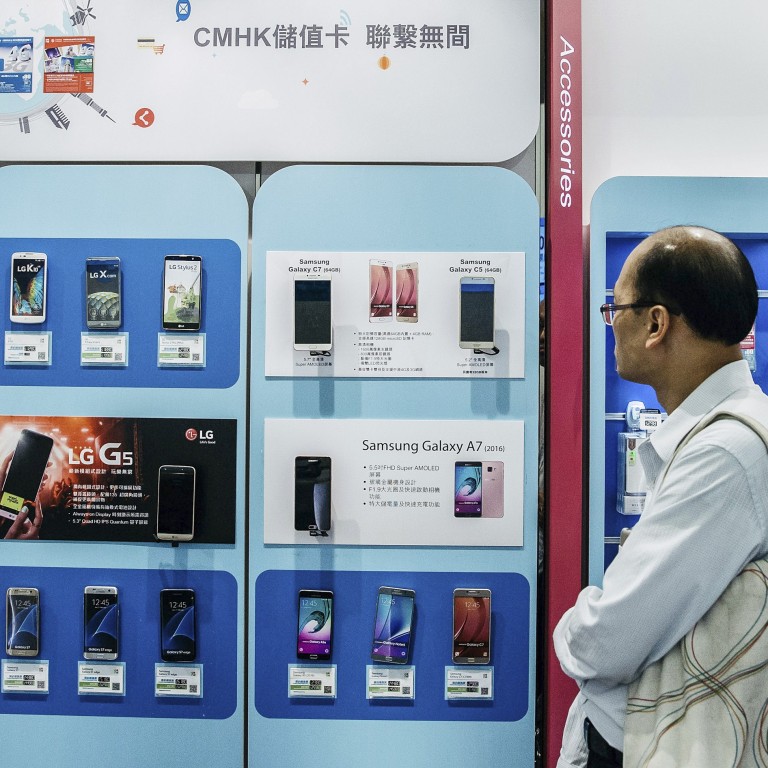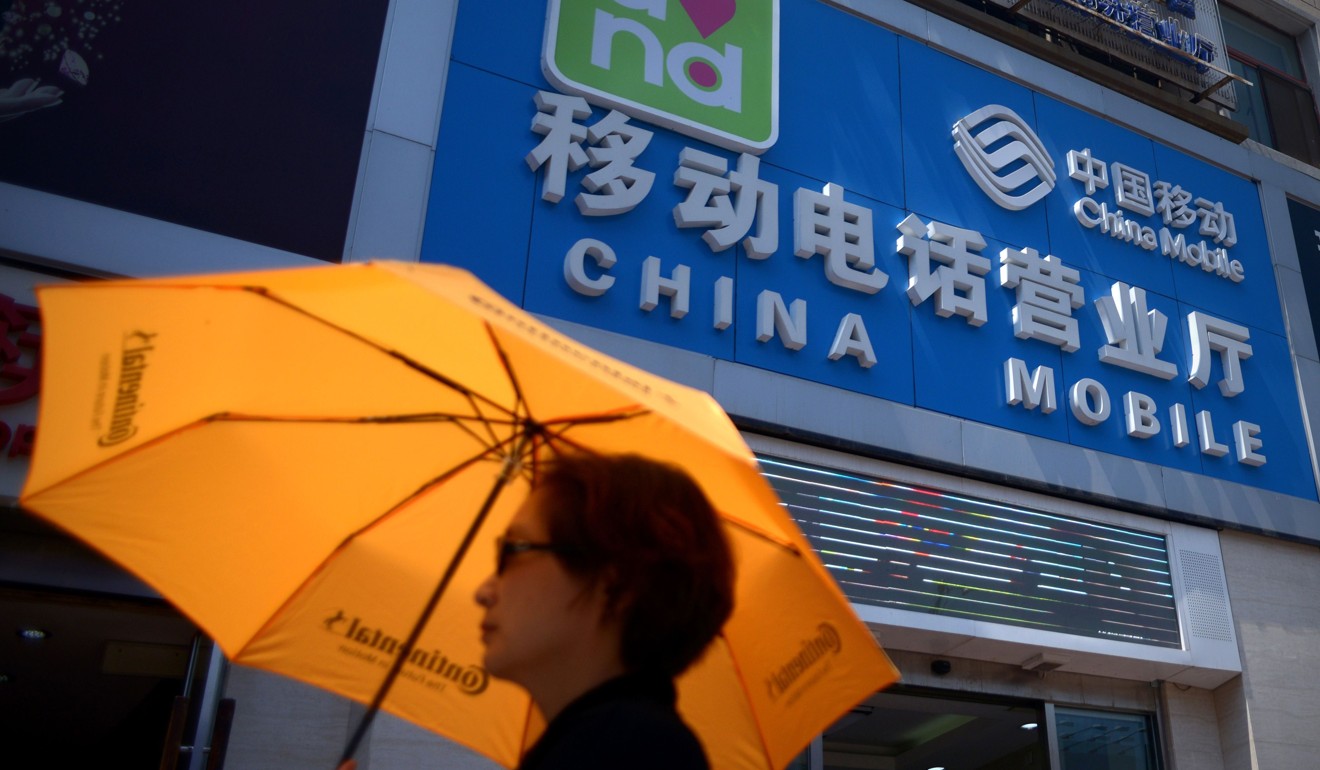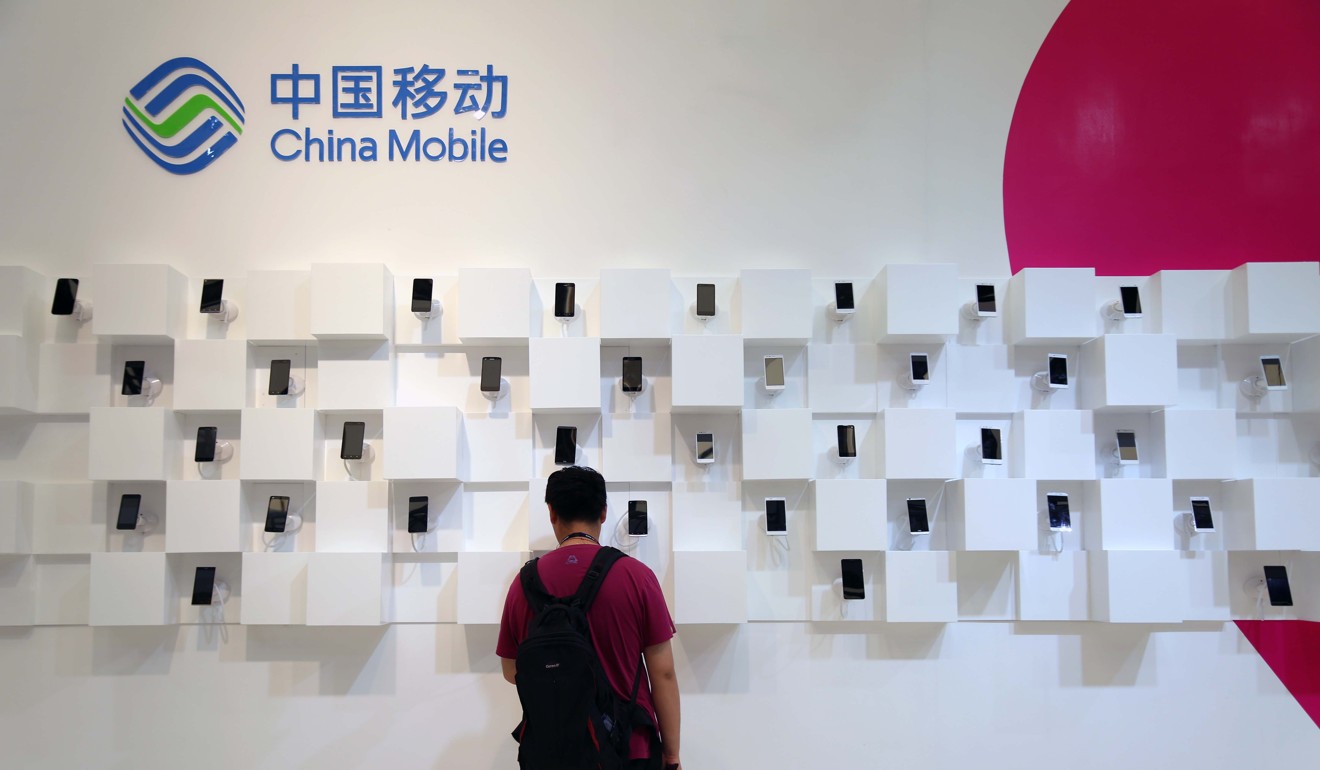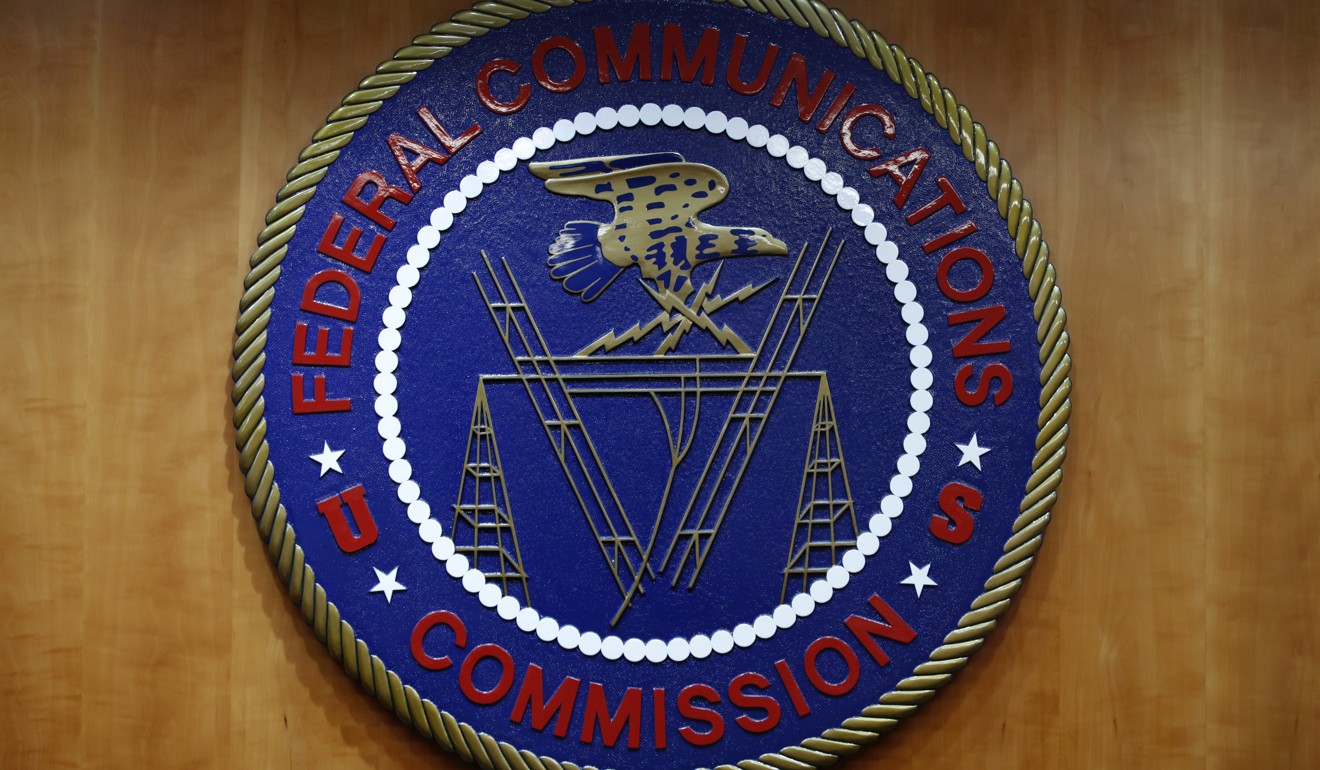
US blocks China Mobile from offering service in America over national security concerns
- Regulators vote against the Chinese telecoms company’s application to provide US phone service
- Ruling comes with Chinese delegation led by top negotiator Liu He arriving in Washington for trade talks
US communications regulators on Thursday voted against a Chinese telecoms company’s application to provide phone service in the US, citing national security risks amid escalating tensions between the two countries.
The ruling against China Mobile, which is owned by the Chinese government, comes on the day that a Chinese delegation led by top negotiator Liu He arrives in Washington for talks to end the US-China trade war.
China Mobile, the world’s largest wireless network operator, sought approval in 2011 to provide interconnection services for phone calls between the US and other countries.
The Federal Communications Commission on Thursday rejected the application in unanimous 5-0 votes across party lines, following the Commerce Department’s recommendation to deny last year.

The FCC said the applicant, China Mobile USA, based in Delaware, is “ultimately owned and controlled by the People’s Republic of China”.
Granting the application “would raise substantial and serious national security and law enforcement risks”, the FCC said in an announcement on Thursday.
The FCC move comes as the US worries increasingly about China’s ambition of dominating key industries.
Seeking to contain the Asian country’s advancement in 5G, or fifth-generation, cellular technology, the Trump administration has tried to deal with it aggressively.
The US has also pressured governments globally to sever their relationships with Chinese telecoms equipment makers, albeit with limited success. It says companies such as Huawei and ZTE pose national security threats to countries because of their potential to harvest data for Beijing.
Thus, technology has become the thorny issue at the centre of the trade talks, slowing down the two sides’ ability to reach a deal.
Pompeo takes aim at China, warning Britain over Huawei and 5G
The US has demanded Beijing introduce laws to protect intellectual property rights and halt the forced transfer of proprietary technology from foreign companies operating in China to their Chinese joint-venture partners.
Earlier this week, Trump abruptly announced plans to increase tariffs on Friday to 25 per cent from 10 per cent on US$200 billion of Chinese goods. The White House said the escalation was caused by China’s back-pedalling on already agreed-upon terms of a possible deal.

FCC set to block China Mobile bid to provide US services
FCC Commissioner Brendan Carr, at an open meeting of the regulatory authority on Thursday, also called on it and national security agencies to examine Chinese state-owned companies China Unicom and China Telecom.
Carr said security threats have changed since the companies, which currently operate in the US, were given permission to enter the US market in the early 2000s.
China Mobile, China Unicom and China Telecom did not immediately respond to emailed requests seeking comment.
FCC Chairman Ajit Pai said on Thursday that “there is a significant risk that the Chinese government would use China Mobile to conduct activities that would seriously jeopardise the national security, law enforcement and economic interests of the United States”.

From Huawei charges to new Trump threats: months of jolts to trade talks
“The Chinese government could use China Mobile to exploit our telephone network to increase intelligence collection against US government agencies and other sensitive targets that depend on this network,” he added.
The FCC has also proposed cutting off funding for US telecoms companies that use equipment from Chinese companies deemed national-security risks.
That could hurt small rural phone companies that have that equipment in their networks.
This measure has not been scheduled for a final vote.

